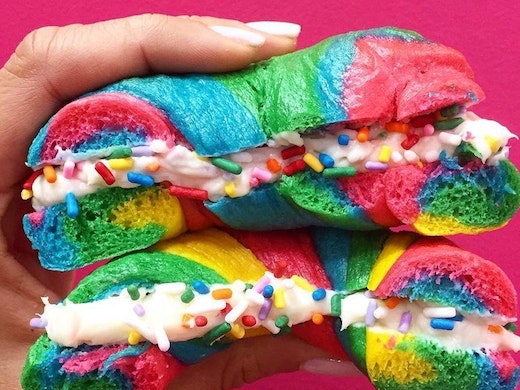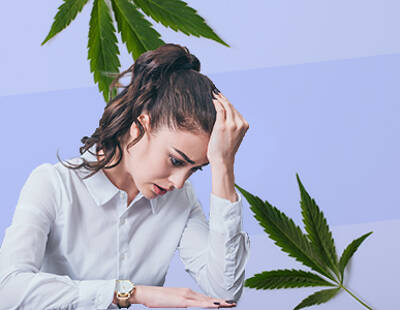
There are many great options in Houston, whether you're looking to send a delicious vegan gift or a wonderful baker your next batch of cookies and cakes.
These are some of our favourite vegan bakeries around the city. They are vegan-friendly and use organic ingredients. You can order them online so they can be delivered to you right at your doorstep.
Weed Cookies Vegan Recipe: This vegan cookie recipe mixes weed-infused sugar and butter with traditional ingredients to create a soft, chewy treat. It's perfect for sharing or snacking. The Viet Vegan blog adapted the recipe. This is a great recipe to have in your kitchen, especially for trying out new cannabis-infused recipes.
Vegan Cbd Chocolate Recipe: If you want to get high without getting psychoactive, this CBD-infused chocolate recipe is for you. It's easy and quick to make.

Tout Suite Delivery: This bakery serves up a selection of vegan treats and is available for pickup at its Midtown location, as well as online for curbside and delivery. The bakery also offers custom cakes and a large variety of cookies, bars and granola.
The bakery also offers custom snickerdoodles. The snickerdoodles can be made from almond flour and then rolled in powdered Sugar. The brownies are available in four flavors and can be topped with walnuts and chocolate chips.
The Bakery: Shannon Smith Waiter is the owner and operator of this Heights specialty bakery. She offers both classics and custom-decorated cookies. Available in three sizes, six-packs of small cookies (all $10), and six-packs of large cookies.
Ice Cream Truck: This ice cream truck is located at 2901 Emancipation Ave. It offers unique non-dairy icecream flavors such as purple yam cheesecake and lemon basil. Any flavor of icecream can be made into a CBD shake.
Green Seed Vegan is a Houston vegan restaurant that has been open for 10 years. It's a popular choice because of its energizing elixirs and homemade veggie burgers. Its Grounded Ellixir with turmeric and ginger, cayenne pepper, lemon, and cayenne is a must.

This Houston eatery is also well-known for its extensive Asian cuisine, which includes many Americanized and vegan dishes. Birria Tacos, fried veggie dumplings, and Tamarindo Margaritas round out this meal.
Wisdom Bakery Cafe: This charming bakery is located just north Houston. They have a wide selection of classics including their vegan muffins. There are many delicious savory choices, including a variety of sandwiches and burgers that you will not be able resist.
FAQ
How can CBD products be promoted in a legal manner by CBD companies?
The FDA doesn't regulate hemp as an agricultural commodity. The FDA regulates cannabis derivatives (e.g. marijuana) under the Controlled Substances Act. To date, there are no specific regulations for CBD.
CBD is legal in 29 states. Federal law, however, still considers it illegal. This uncertainty creates uncertainty for CBD product sellers.
The FDA also has guidelines for how CBD products should be advertised. They must disclose the THC content of any CBD products. Without scientific evidence, companies cannot claim CBD treats certain medical conditions.
Further, the FDA requires that manufacturers provide information on manufacturing practices and quality controls. They also require companies to conduct clinical trials to prove safety and efficacy.
Companies should consider these factors when developing their own marketing strategies.
How much CBD is required?
The product type you're using will affect the amount of dosing.
The majority of CBD oils are available in strengths between 100mg and 1,000mg per bottle.
Some companies make CBD products with specific dosages, such as 25mg, 50mg, 75mg, and 100mg.
For example, the company Charlotte's Web makes CBD products with precise amounts of CBD and other cannabinoids.
Start with a low dosage if you are unsure if CBD is right for you.
You can always go higher later.
Is there a saturation in the CBD market?
The CBD industry is experiencing a growth rate of over 25% annually. This growth will continue at least five years. According to industry projections, it will grow from $2 billion to $5 billion by 2020.
Two companies dominate the CBD market: GW Pharmaceuticals (Canndoc Ltd) and Canndoc Ltd. Both companies have a focus on creating pharmaceutical-grade products. But they have not been particularly successful. Both are struggling to get traction on market.
Cannabidiol (CBD) is an extract of cannabis that contains less than 0.3% THC. It has no psychoactive effects. It is used to treat epilepsy and other conditions. It is often used as an dietary supplement.
There are many types of CBD products. Some CBD products are made with whole plants extracts, others use CBD isolates.
These products all have one thing in common: they contain low amounts of THC.
They are now legal under US federal laws. You still need to comply with local laws when you sell CBD products. You should always check with your state's regulations regarding the sales of CBD products.
In addition, there are several states where CBD products are illegal. These include California. Colorado. Florida. Mississippi. Missouri. New York. North Carolina. Ohio. Oklahoma. Oregon. Rhode Island. South Dakota. Texas. Utah. Virginia. Washington.
CBD products should not be made if you reside in these states.
How big is the global CBD market?
Euromonitor International estimated that the global CBD industry was worth $US3.5 billion in 2015. This is more than 10% higher than 2014
The report forecasts this figure to reach $US 6.4 billion by 2020, representing an average annual growth rate of 12%.
By 2020, CBD products will account for approximately half of all global hemp-derived products.
This includes CBD oils, as well other CBD products, including food, beverages cosmetics, pet care, and CBD oils.
Does CBD help with anxiety?
CBD oil can be used to treat anxiety. It interacts with CB1 receptors and CB2 receptors in your brain. The endocannabinoid system regulates mood and stress responses.
CB1 receptor is activated when our bodies feel anxious. This receptor activates and sends signals to amygdala which is responsible for emotional processing.
When the CB1 receptor is blocked, the amygdala doesn't receive the signal to process emotions. People who use CBD have fewer negative emotions.
In 2017, a study showed that CBD can reduce anxiety in people with social phobia. Another study revealed that CBD helped reduce symptoms of PTSD.
A 2018 review concluded CBD's anxiolytic qualities could be helpful in treating generalized anxiety disorder.
Another study concluded that CBD may help with panic attacks.
However, several studies have shown that CBD actually increases anxiety levels in mice.
The researchers believe that this discrepancy between human data and animal results may be due to differences in how humans and animals respond to CBD.
There are no long-term safety studies available for CBD. Experts are unanimous that CBD is safe if used as directed.
What's the future for the CBD industry?
The future of the CBD industry is bright. It is clear why so many people are getting on board with this industry. With over $1 billion spent globally by consumers on CBD products alone, it's not hard to see how this market is growing exponentially.
Statista reports that in 2019, global sales of CBD (cannabidiol) are expected to exceed $22.4 Billion. This is almost 200% more than 2018!
A compound annual growth rate (CAGR) of 22.5% is predicted for the CBD market, which will translate into nearly $6.8 Billion in revenue by 2022.
This is great news not only for existing businesses but also for companies looking to get into the sector. The CBD market is still young and may face challenges.
Statistics
- however, one study also found that these effects were virtually abolished when the original media (a nutrient broth agar) was replaced with one containing 5% blood (increasing the minimum concentration to ~160 μM CBD) [179]. (ncbi.nlm.nih.gov)
- A recent systematic review of human trials also reported that individuals with epilepsy receiving CBD (5–20 mg·kg−1·day−1) were more likely to experience decreased appetite than those receiving placebo (i.e., ~20 vs. 5% of patients) (ncbi.nlm.nih.gov)
- A recent study [161] also found that in vitro CBD treatment (i.e., ≤ 2 h exposure to 10 μM) induced ~40% vasorelaxation in isolated (pre-constricted) (ncbi.nlm.nih.gov)
- OralWhere HED is the human equivalent dose, and Km is a correction factor estimated by dividing the average body mass (BM) of the species (60, 0.020, and 0.150 kg for 11 humans, mice, and rats, respectively) and by its surface area (see: Nair et al. (ncbi.nlm.nih.gov)
- HR −16 mmHg; 95% CI −26, −6; I2 = 92%) (ncbi.nlm.nih.gov)
External Links
How To
What are the common issues in the CBD industry?
The current market for CBD products is growing at an incredible rate. But, businesses who want to enter this market still face numerous challenges. There are many challenges facing businesses looking to enter this space, including low consumer awareness, high costs of entry and limited access to capital.
Many consumers aren't aware of the benefits and limitations of CBD. This means they are not able to make informed choices about whether or no to purchase CBD products.
Many CBD companies depend heavily on word of mouth marketing. This is costly, as it requires advertising and the hiring of staff to promote their brand.
High production costs are another problem facing new entrants in the CBD industry. CBD products can be very costly because of the cost of the raw materials. CBD oil can only then be produced if the hemp has been grown in a specific environment.
Growing enough hemp to make CBD oil takes around $1,000 per acre. Many small farmers are unable or unwilling to invest in this product.
Another challenge new entrants face in the CBD market is the lack of access to capital. Banks are often discouraged from helping people start businesses because of the stigma that surrounds the industry.
Last but not least, there is regulatory uncertainty regarding the sale and distribution of CBD products. There are currently not clear guidelines as to how CBD products should marketing.
Although states have passed laws restricting CBD products sales, these policies are not yet national.
Only Nevada and Maine have so far legalized recreational marijuana.
Massachusetts and Michigan are however considering similar measures.
These changes could result in increased competition between CBD manufacturer.
These factors are why many entrepreneurs prefer to work from home than open a physical store.